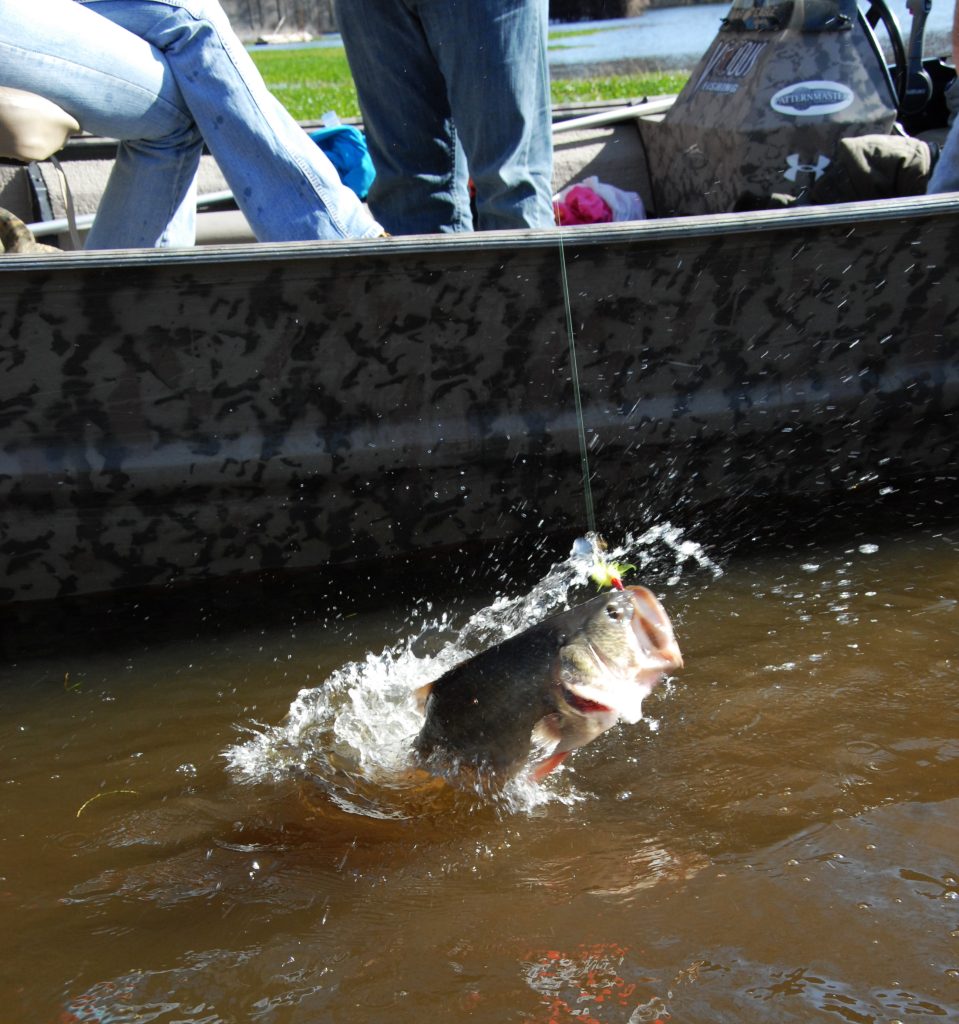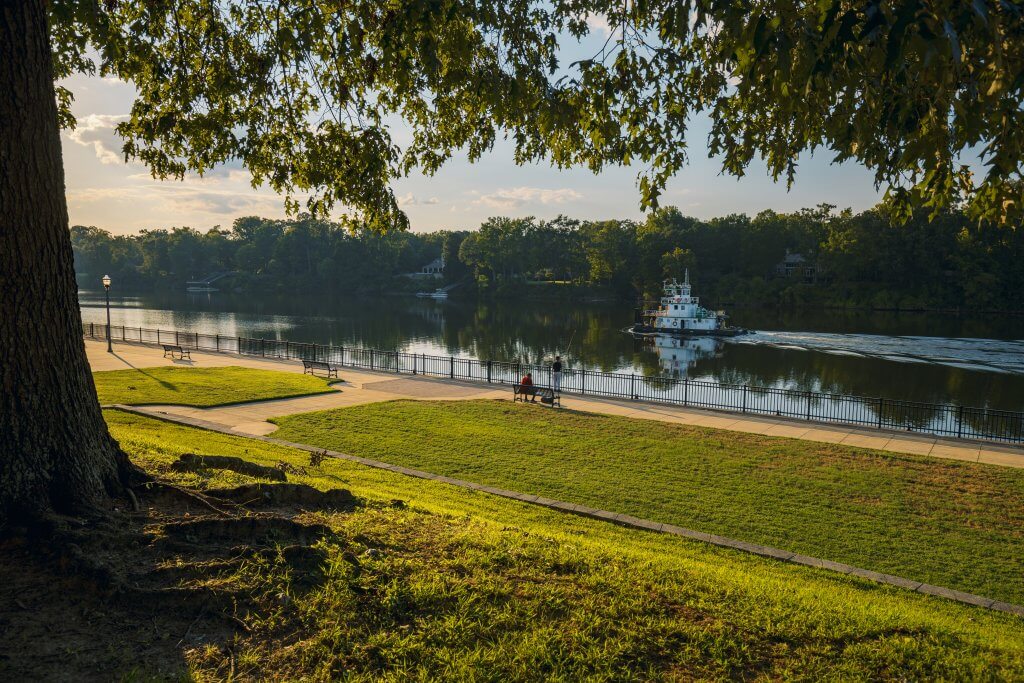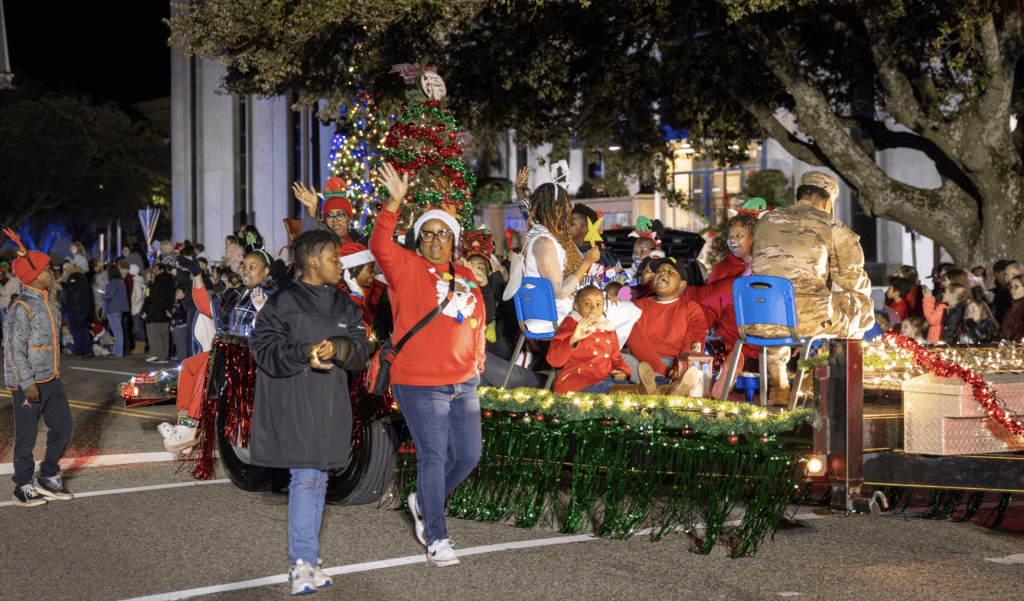Editor’s Note: Toby Wilson is a management consultant and has been fishing the Black Warrior River in Tuscaloosa County for the last seven years. He’s also heavily involved with high-school bass fishing in Tuscaloosa County with his three sons through Holy Spirit High School. His eldest, Garrett, is 18-years old, his son, Matthew is 16 years old, and his youngest son, Chase, is 15-years old.
John E. Phillips: Besides the backwaters on Oliver Lake, where else are you fishing for bass?
Toby Wilson: In the spring, the current generally will be very strong when the area receives a large amount of rain. We’ll often pull out to the main riverbank and fish downed trees. We look for current breaks and eddy pools caused by downed trees that have fallen into the river. To fish on the main river channel, you must keep the nose of your boat pointing upcurrent with your trolling motor. Sometimes you may have to fish with the current, if the current’s strong coming down the river.
One of the techniques we use is getting behind a treetop downstream from a blowndown tree, cast up to the eddy pool that’s created behind the blowdown and run our chatterbaits with the current, back to the boat. Most of the bass we catch will be caught out of these types of eddy holes. If we’re fishing at the end of a blowdown, we’ll fish with a spinner bait or a shallow-running crankbait, like a 1.5. Sometimes we can fish the chatterbait on the ends of those treetops. Most of the bass we catch at the ends of the blown-down trees are spotted bass, and in the eddy holes, we primarily catch largemouth bass. Many times, the spotted bass will school-up on the ends or the front sides of the blowdowns, and you can catch as many as you want to catch. However, you may go back to the same tree a week later and not get a bite.
Recently I took my youngest son, Chase, to practice for a tournament that was to be held on Oliver Lake. Although he prefers to play golf, he still will go and fish with me. I gave him a chartreuse crankbait to fish with, and we found two logs laying in the water. In-between the distance of the two logs, he caught three spotted bass for a total of 8 pounds. I went back to those two logs on tournament day, but the spotted bass had left. One thing you must remember about river fishing is that it’s always changing. The current will eat the dirt out of the riverbank and cause trees to fall-in and create current breaks. Also, trees that are in the water already, where you may have caught bass before, may get washed down the river. So, anytime you’re fishing a river, you’re usually looking for another place to fish than where you did the week before. At Oliver, we always fish various spots on the river until we reach Akron. Then we fish blowdowns located on both sides of the river there.
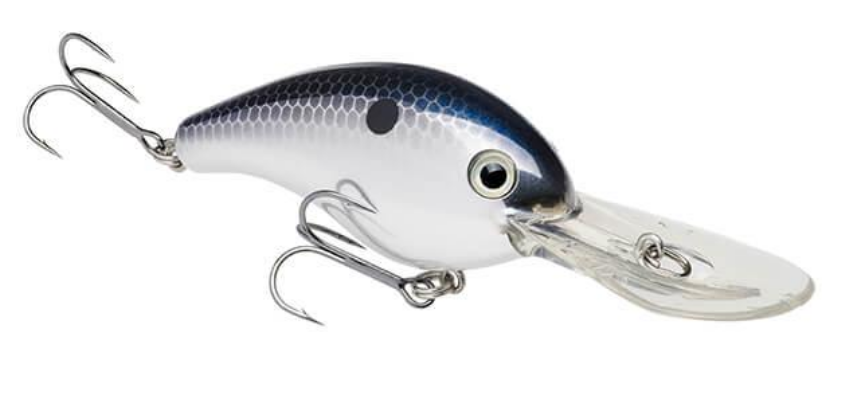
Phillips: What are your favorite Lake Oliver lures?
Wilson: My favorite river lures include a white spinner bait with white blades or a white spinner bait with gold willow-leaf blades. I use a white split-tail trailer on the back of the spinner bait. Sometimes I’ll have a big willow-leaf blade on the back of the shaft and a small willow-leaf blade on the front of the shaft of the spinner bait. I’ll also fish a combination of a gold Colorado blade with a gold willow-leaf blade on the same spinner bait. On bright days, the gold blades produce the best bass, and on overcast rainy days, the white-painted blades seem to be the best.
When we’re fishing spinner baits on the river, we know we’ll get hung-up often and even lose those lures. If you’re fishing near trees, bring numbers of spinner baits with you. We’ll fish the ends of the trees and the backsides of the trees. We’ll run the spinner bait through the trees and in the eddy pools behind the trees. If the spotted bass are around the trees, you can catch and release probably as many as you want.
We’ll also fish a medium-diving crankbait that dives 5-10 feet in chartreuse or in white colors and also a blue-back crankbait. Bomber, Bill Norman, Booyah and Lucky Craft crankbaits produce plenty of bass. I like the splatter back Bomber crankbaits. The river’s not very deep at Oliver Lake, although there may be some places deeper than 20 feet – but not many. Most of the bass we’re catching will be suspended and near logs.
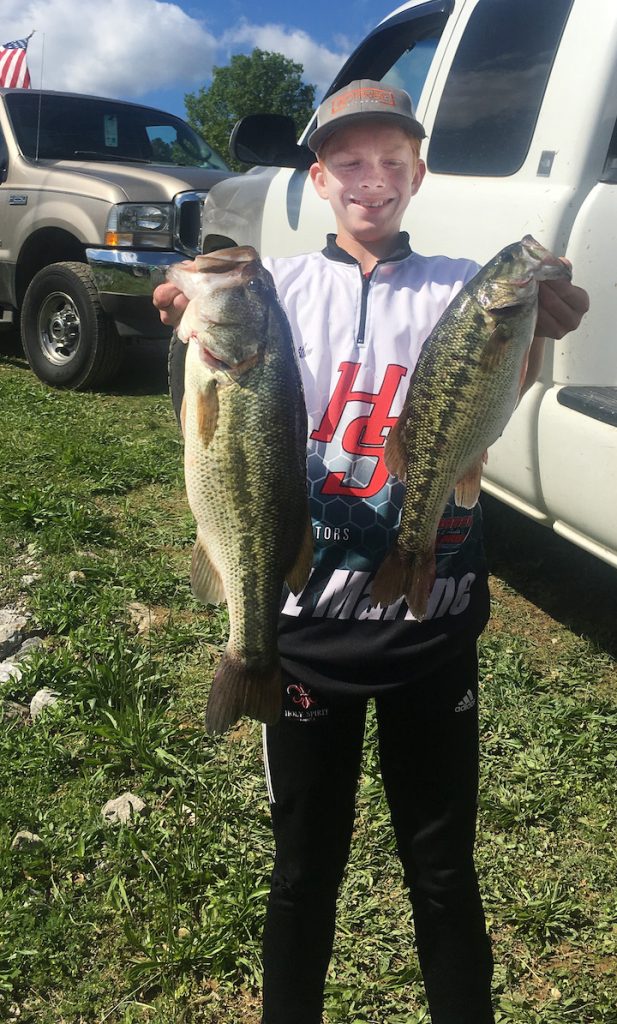
Phillips: Are you retrieving your crankbaits against the current, across the current or with the current?
Wilson: We always try and fish our crankbaits with the current, which means we must burn them hard as soon as they hit the water to get the crankbaits down to the depths where the bass are holding. We often will fish with a chatterbait as much as possible like we fish the crankbait. Oliver Lake’s water often is stained or muddy. So, having a lure like a chatterbait that makes a lot of noise may give you an advantage for catching bass there. Most of the time we’ll be using white chatterbaits, but on a cloudy, overcast day, we may fish a black-and-blue chatterbait.
Phillips: On a day of fishing the river around the logs and the blowdowns, how many bass do you think you’ll catch?
Wilson: If we’re fishing in a tournament, we know if we can get five bass that weigh 8-10 pounds, we’ll be in contention to win at Oliver. As far as the number of bass we can catch in a day, we may catch 20-30, if we can find the right tree top where the bass are holding. Most of the fish in treetops will weigh 1-1/2 to 2 pounds each. The best spotted bass my family ever has caught at Oliver weighed 4 pounds, and on most lakes, a 4-pound spotted bass is considered a good catch.
Phillips: If you fish on Oliver Lake down to Akron, where will you catch the most spotted bass and the most largemouths?
Wilson: We usually catch the most spotted bass upriver in Oliver, and most of our largemouth bass weighing 1-2 pounds each we catch in the backwaters close to Akron. In the backwaters, we have caught a limit of five bass weighing 12 pounds in a tournament. Many locals really do well fishing for largemouth bass in the backwaters. Often, the locals will catch five fish, weighing 15-20 pounds, in a day of bassing the backwaters.
